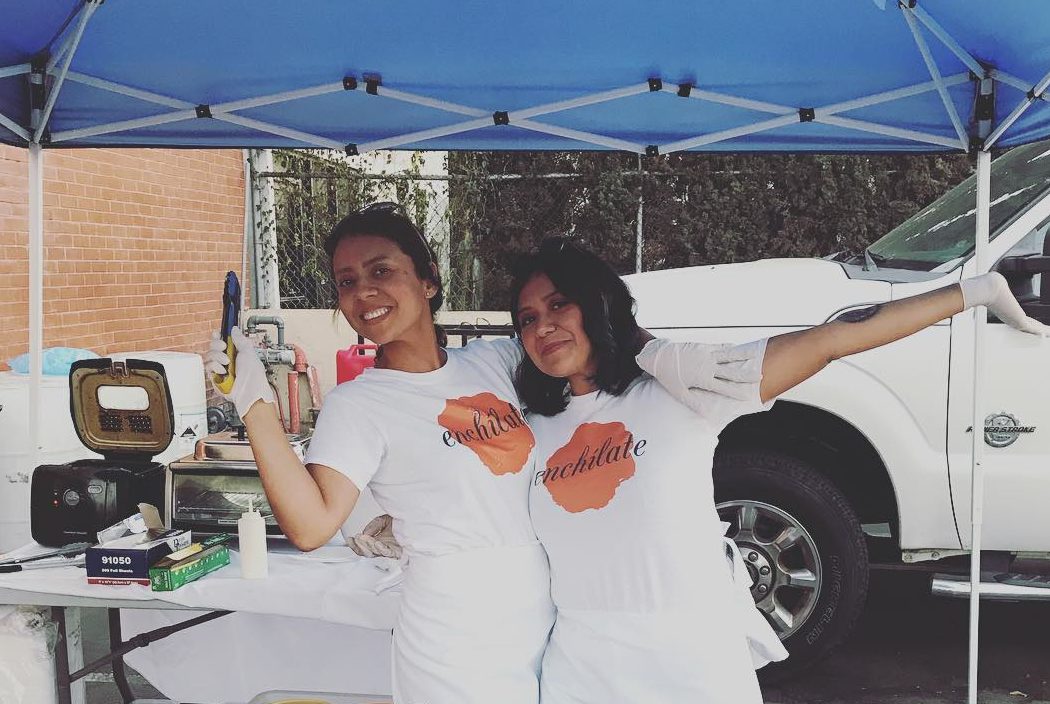[dropcap size=big]T[/dropcap]here is one central tenet to Enchílate – as their namesake suggests, it has to be spicy. Each dish from the fledgling Mexican fusion food pop-up layers spiciness but it is always in favor of taste, like their chimichurri steak taco. It’s a flour tortilla smeared with the coarse green sauce – in this case made primarily with serrano peppers – and filled with a citrus-marinated steak and habanero slaw.
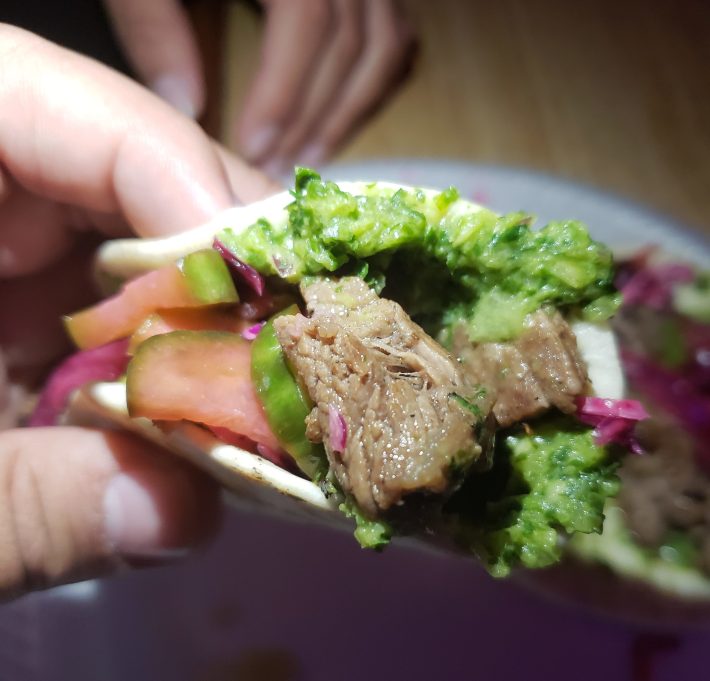
Enchílate was created by Judith Martinez and Aimee Verduzco, two Lynwood natives who are sisters-in-law, mothers, and have other full-time jobs. Verduzco and Martinez find inspiration in Latin American flavors they grew up with at home and the small mom-and-pop restaurants the cuñadas love.
A cold beer pairs well with their food, which is fortunate because Enchílate is mostly found at breweries. But even a cold, soothing stout hardly puts out the fire. Martinez, one half of Enchílate, explains that the chimichurri is their version of the Argentine favorite, “if you add limon, it’s an aguachile,” she tells L.A. Taco with a laugh and a nod to her Nayarit background.
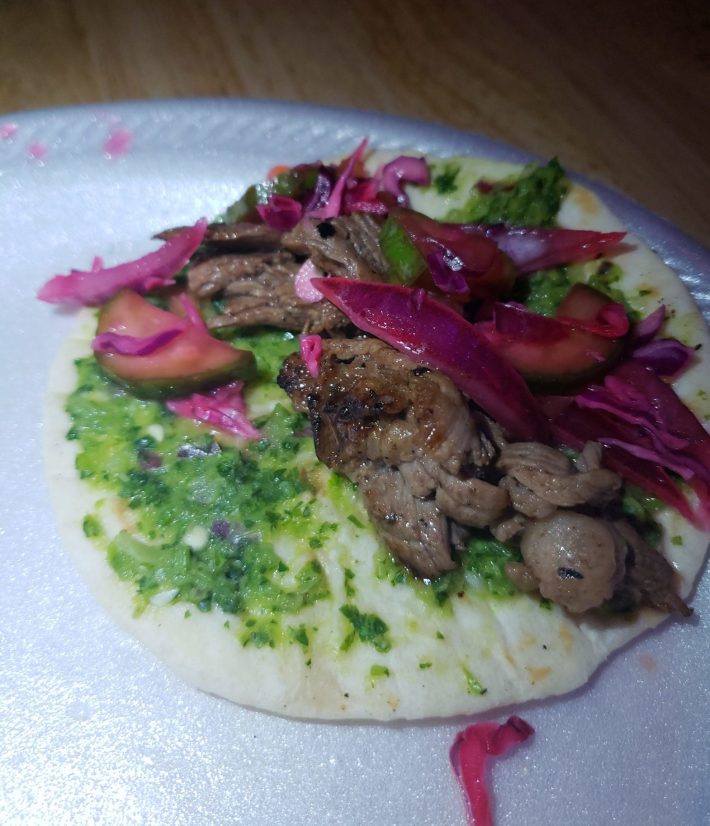
A typical pop-up day for the Lynwood natives starts with a full shift at their respective day jobs. After work, they must each secure a babysitter, buy all the ingredients, and prep. Then they can stage their creations.
Enchílate’s menu usually consists of one taco and a few other special items that change every pop-up. This format allows them to try new items and lead with what’s in season. Some of their past menu items are tinga, cauliflower ceviche, teriyaki salmon tostadas, shrimp pipian, Mediterranean al pastor, and Mexican pot roast tacos. They usually offer a meatless option for vegetarians.
Their “steak saltado” taco takes the Peruvian favorite and resizes it to a taco. It is sauteed steak with fries, bell peppers, onions, and topped with an aji sauce. The sauce is made of Aji peppers and it is creamy, spicy, and acidic.
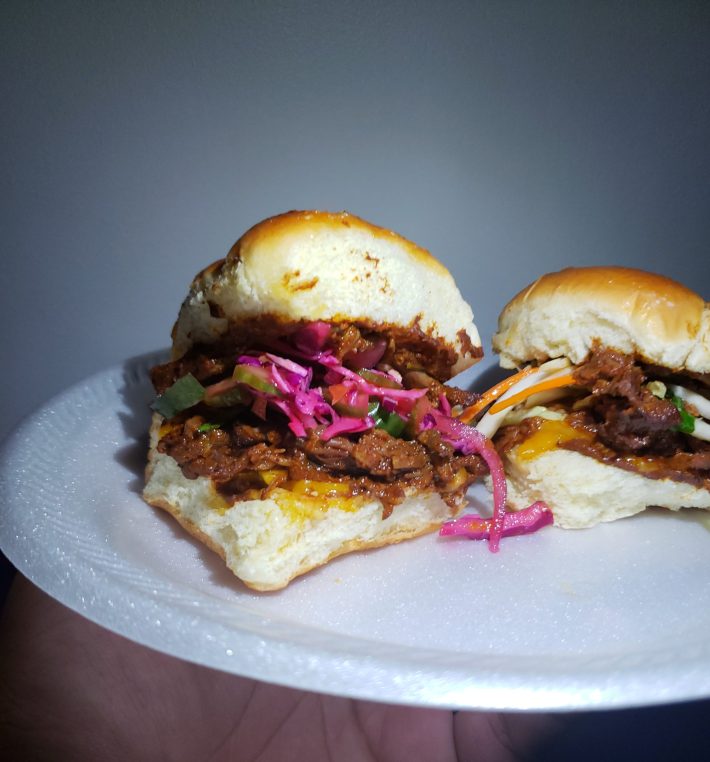
The pot roast sliders start with a smear of auburn colored chipotle sauce on a toasted bun, their Mexican-style pot roast, a morsel of cheese, and two different slaws. One of the sliders – the spicier of the two – has the aforementioned habanero slaw and the other one has pickled carrots and cucumbers to brighten things up. These little sliders seem innocuous but they sucker punch you with spice and make you want another bite.
The idea for Enchílate came after Martinez was laid off from her job at a software company, a job she had for 12 years. Since they both shared a passion for food they decided to buy a food truck. But after reassessing the situation, they figured the pop-up model was more cost effective. Now they pop up around Los Angeles usually at breweries.
The food pop-up model has become common place for the Los Angeles millennial consumer but there’s a perception that it skews masculine in the upper echelons. Enchílate is challenging that narrative by cooking as well or better than their contemporaries. Though Martinez points out that the perception is false to begin with. “I feel we women are pretty much carrying the torch at the moment,” she says.
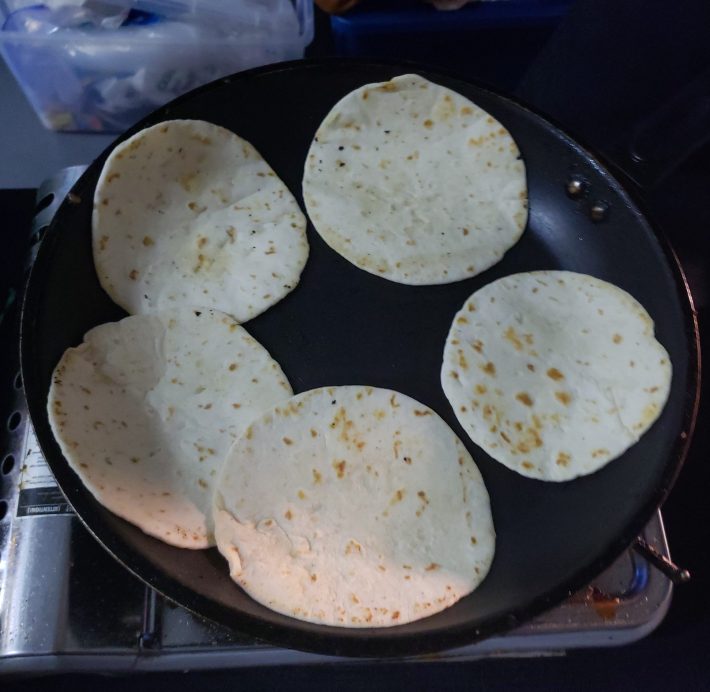
Martinez’s relationship with food started as a kid eventually landing her in culinary school. She stopped attending because of work and family but the desire to cook remained. Verduzco is the quiet one of the two, but she shares her story of wanting to go to culinary school. “When I told my mom I wanted to go to culinary school she responded: ‘¿estas loca?’”
According to Verduzco, she has never been a stranger to the kitchen, where she basically grew up with her mother as her culinary inspiration. “She makes the best food,” she says matter of factly. “I know everyone says that but mine really does.”
RELATED: Feminist Food and the 'Queerest Coffee'; in Long Beach ~ Wide Eyes Open Palms
